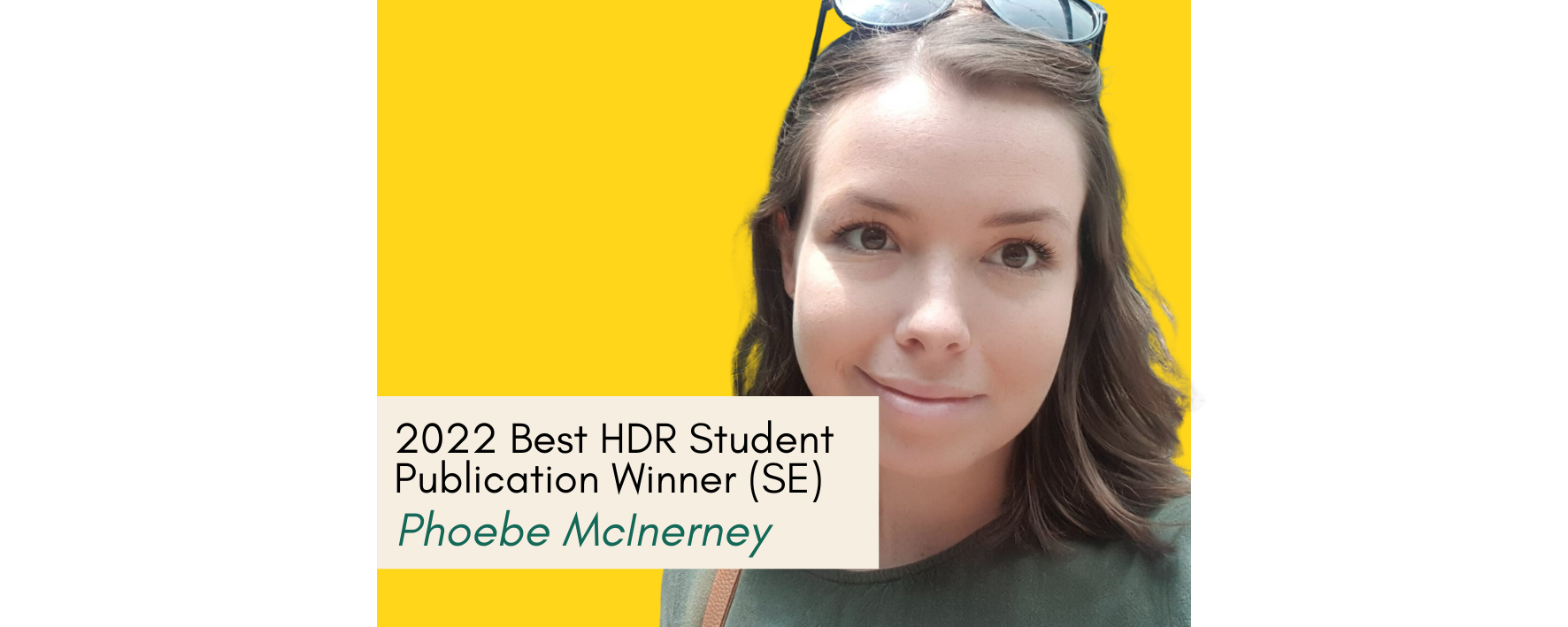
Phoebe McInerney is from the College of Science and Engineering and is one of the eight winners of the Best HDR Student Publication Award for 2022. Phoebe is supervised by Professor Trevor Worthy and Professor Mike Lee.
The winning publication “Multiple occurrences of pathologies suggesting a common and severe bone infection in a population of the Australian Pleistocene giant, Genyornis newtoni (Aves, Dromornithidae)” explores evidence for the occurrence of a bone infection in a population of giant birds which went extinct some time around 50 to 55 thousand years ago. Amazing preservation of fossils from a fossil locality at Lake Callabonna in South Australia, allowed for the discovery of several individuals of this giant bird species which showed signs of such an infection suggesting that the population was struggling, likely with environmental changes occurring at the time, and led to them being more susceptible to infection due to a reduction in immune system efficiency.
We invited Phoebe to share insights into the PhD journey and what winning this award means.
Tell us about your PhD journey so far.

My PhD journey has been a complicated one. There have been large changes to chapter composition, and delays for various reasons. I have additionally partaken in numerous activities external to, and alongside, my PhD which have diversified my skill set but also been challenging to manage time wise. However, my research is progressing, and I have enjoyed the research process and having the opportunity to work with many prolific researchers and dedicated colleagues. It has been a very busy and challenging few years, but it has also been incredibly rewarding and I am very happy with the scientific contributions that I feel I am making to my research field.
![]()
What does winning this award mean to you?
Winning this award is incredibly humbling. The award was given for one of my research chapters which is quite niche, meaning that very few people globally work within this field. That led to several challenges to overcome as there was limited information I could easily collate from the literature and colleagues to help create this project, conduct the comparative analyses, and decipher the findings. It was also a brand-new field to me, so I lacked any background knowledge and had to start this research from scratch. Regardless, I found it a very interesting topic of research which had novel findings which were supported by research from colleagues at Flinders university and other institutions. It makes me very happy to have this paper, and the research and time that went into it from myself and my co-authors, being recognised.
![]()
What is your research about?
My PhD research encompasses examination of the morphological diversity and ecology of an extinct radiation of birds to look at the evolutionary pathways which led to the evolution of such a unique lineage. I employ a range of methodologies required to address several research questions regarding this, with the more general aim of elucidating the impact of disease, morphological shape variation, and evolutionary trajectories on the ecology and diversity of extinct Galloanseres (land- and waterfowl).
![]()
What advice would you give to current or prospective PhD students?
There will always be challenges, regardless of what you are working on. It is important to stay focused through these challenges and lean on others who have likely been in similar situations themselves. Additionally, I have found that, regardless of what has come up, maintaining organisation is of upmost importance to stop from getting overwhelmed with the number of things there will be to work on.
![]()
Why did you choose to commence a PhD?
I ended up following small interests and found myself completing an Honours project which I really enjoyed. I decided that I would continue down the research path and do something that challenged and stimulated me, while expanding my knowledge in an area I was immensely interested in.
![]()
How did you choose your supervisor?
Trevor was the best person for the type of project I was interested in and having had him as a teacher in an undergraduate topic, and my Honours supervisor, I knew he would be able to support me through a PhD. He additionally had an interesting project available which I selected.
![]()
What are your future goals and plans? / Where do you see your career heading in the future?
I do not have a clear idea on what my future career will look like, and I think that considering the challenges associated with building a career on research, that is probably a common thing. I have diversified my skills so I have several pathways, academic and non-academic, which I can take following the completion of my PhD. I am just looking forward to seeing what opportunities are available when I am ready to take them and move onto the next step in my career. I do know though, that in some capacity, I will continue to research the evolutionary history and prehistoric diversity of birds.
![]()
Publication Details:
Mcinerney, Phoebe & Arnold, Lee & Burke, Carey & Camens, Aaron & Worthy, Trevor. (2021).
Multiple occurrences of pathologies suggesting a common and severe bone infection in a population of the Australian Pleistocene giant, Genyornis newtoni (Aves, Dromornithidae).
Papers in Palaeontology.
https://doi.org/10.1002/spp2.1415

